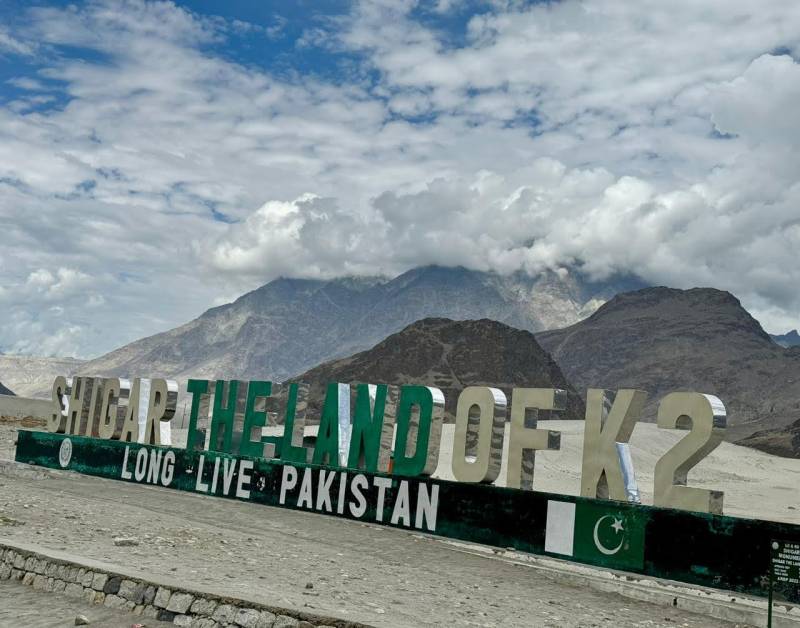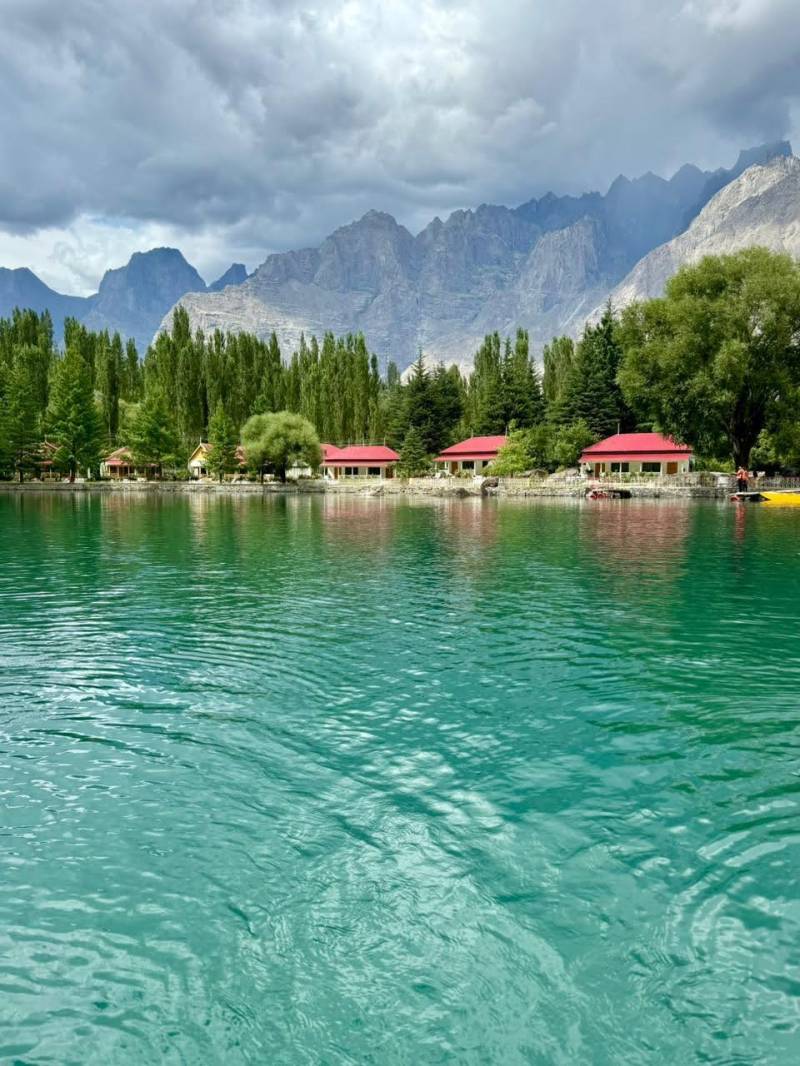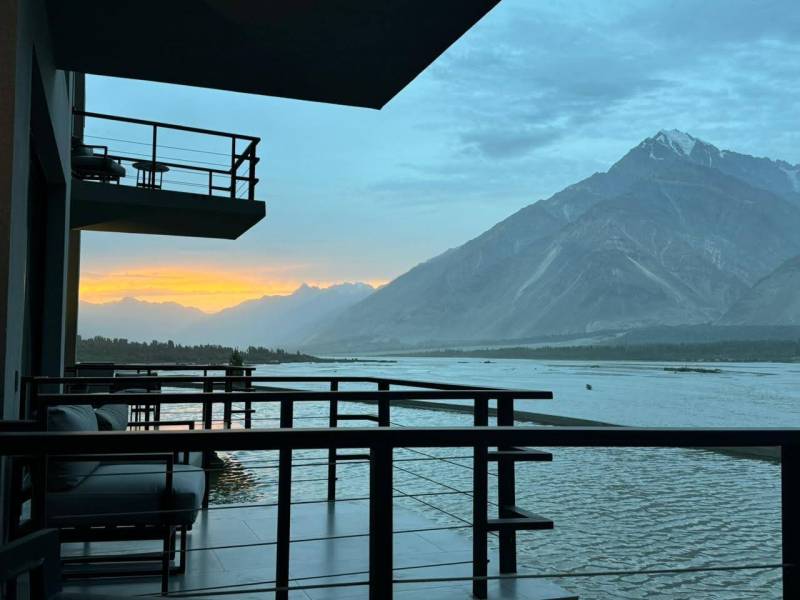In the extreme North of Pakistan, nestled in the heart of Karakoram Range lies the Skardu Valley, where nature has perfectly painted a canvas of mesmerising vistas. A visit to different valleys of Skardu reveals a breathtaking landscape of snow-capped mountains, fast-flowing rivers, meadows, waterfalls and springs. Skardu is a haven for both nature lovers and adventure seekers, surrounded by the mighty K2, the world’s second highest mountain.
A narrow track from the Astore district on your way to Skardu leads to one of the greatest natural wonders in Gilgit Baltistan - the Deosai National Park, an endless expanse of breathtaking, unobstructed green plains, decorated with blue, white, yellow and purple wildflowers, gently embraced by the descending clouds. It is a high altitude plateau. The word 'Deosai' translates to the “Land of Giants”, and it is guarded by the walls of snow-laden mountains on all sides, functioning as a backdrop to an epitome of vastness. It is also a haven for wildlife with a distinctive ecosystem, adding to its spectacular charm.
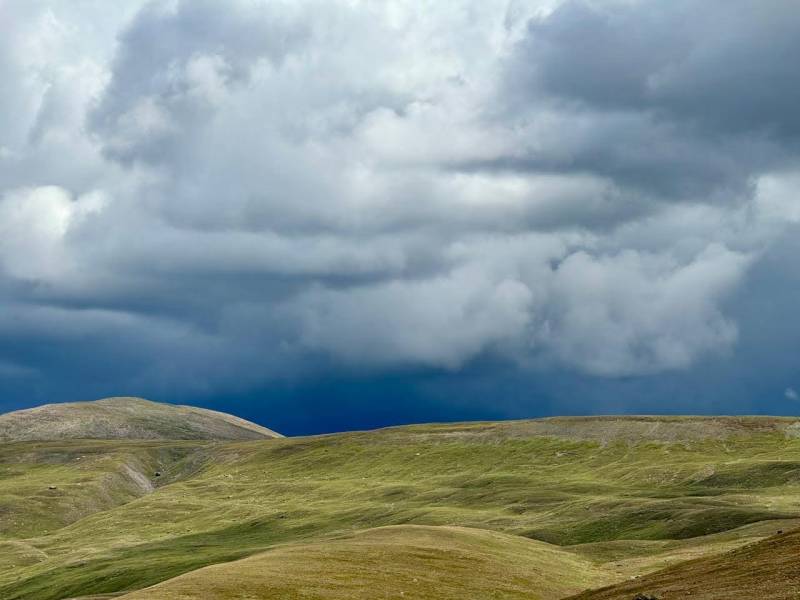
At the heart of the park lies a surreal “Sheosar Lake”, which boasts rare aquatic life and provides water to migratory birds. Indigenous communities, such as the Balti people, share an ancient, inseparable bond with the land - rooted in profound respect for the environment. In addition, the Satpara Lake lies on the way to the Deosai plains - a crystal clear, high-altitude lake, stretching over 2.5 square kilometres, that reflects the cerulean skies atop and provides tranquillity to the visitors. There is also a dam that is built upon the lake, and serves as a critical source of hydroelectric power for the residents of Skardu city.
The adjoining Hushe, Basho and Soq Valleys offer vast and magnificent landscapes that appear to be poetry in motion. A lush green area with streams and rivers that create such a symphony that it can serenade all the senses of the visitors.
Indigenous communities, such as the Balti people, share an ancient, inseparable bond with the land - rooted in profound respect for the environment.
The Manthokha Waterfall is located in Kharmang Valley on Kargil-Skardu road, about 80 km away from the main city centre. It stands tall at 80-feet, hidden away and only accessible through a challenging trekking path. There are a few fish farms and restaurants that surround the area and serve local trout fish to the tourists.
The Khaplu Valley in Ghanche District on Skardu-Siachen road presents an enchanting blend of Tibetan and Balti cultures, evident in several landmarks, such as the Khaplu Palace and Chaqchan Mosque. Khaplu’s landscape boasts lush pastures, terraced fields, and diverse flora and fauna, surrounded by the confluence of Shyok and Indus Rivers.
The Shigar Valley in Skardu is the gateway to the mighty giants of the Karakoram mountain range, such as K2 (8,611 metres) and the neighbouring Broad Peak (8,051m). It is surrounded by the two rivers: Indus and Shigar, as well as some natural springs and waterfalls.
On your way to the valley lie the two high-altitude cold deserts, Katpana and Sarfaranga deserts. This is one of the most unique places on Earth where the snow meets sands of the cold desert. The white granules of sand that form the dunes hold a strange attraction - surrounded by the ice-capped mountains, and the River Indus that flows right through the middle, adding to the diversity of the landscape. Furthermore, the Blind Lake or Jarba Zhao Lake in Shigar Valley lies on the route to K2, a hidden pearl for adventure lovers to discover.
The postcard picture Shangrila Resorts, built around the Lower Kachura lake in Kachura Valley, offer a grandeur of nature, with fruit-laden orchards and tranquillity for the visitors to unwind. Boating activities in Lower Kachura and Upper Kachura Lakes are a chance to slowly travel through the “heaven on earth”. One can also traverse along the floral paths on foot towards the Upper Kachura Lake to explore the natural landscape and the local culture of the region.
A few animal enclosures are also situated along the paths, offering captivating visions of the iconic Markhors and the vibrant peacocks. The Shigar Valley is another picturesque region nestled perfectly between the mighty Karakoram, with the fast-gushing Shigar River offering a magical escape. The sights here are especially sublime when the sun sets and a soft, rosy and warm light reflects off the mountain, with hues of purple and blue in the sky, weaving layers of poetry with the landscape.
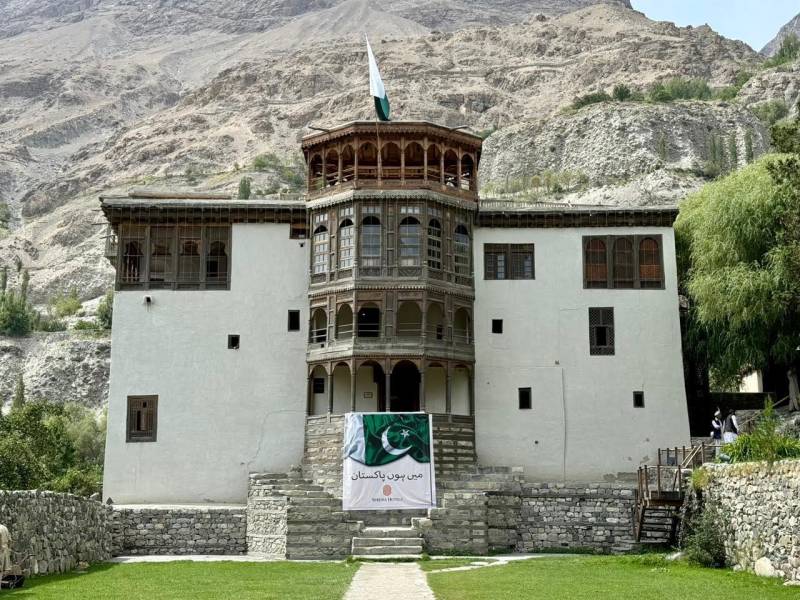
The Serena Hotel located in the Khaplu Palace is a unique heritage boutique hotel, which presents a unique opportunity to reside within the restored original architecture of a 19th century Raja Palace in collaboration with the Agha Khan Foundation and the Government of Norway.
The people of Gilgit Baltistan have a rich cultural heritage, fascinating traditions, and a strong sense of community, closely tied with the region’s unique geography. While livestock rearing, tourism, handicrafts and agriculture are important sources of livelihood in the region, their music, art and literature speak to the diversity and beauty of the people.
I cherish the time I spent in Skardu, deeply immersed in its beauty and the hospitality of its people. Air travel to Skardu was a memorable experience, full of breathtaking views of the Himalayas, the Karakoram, and the Hindu Kush mountains, including the famous Nanga Parbat and K2 (if you are fortunate and the sky is clear).
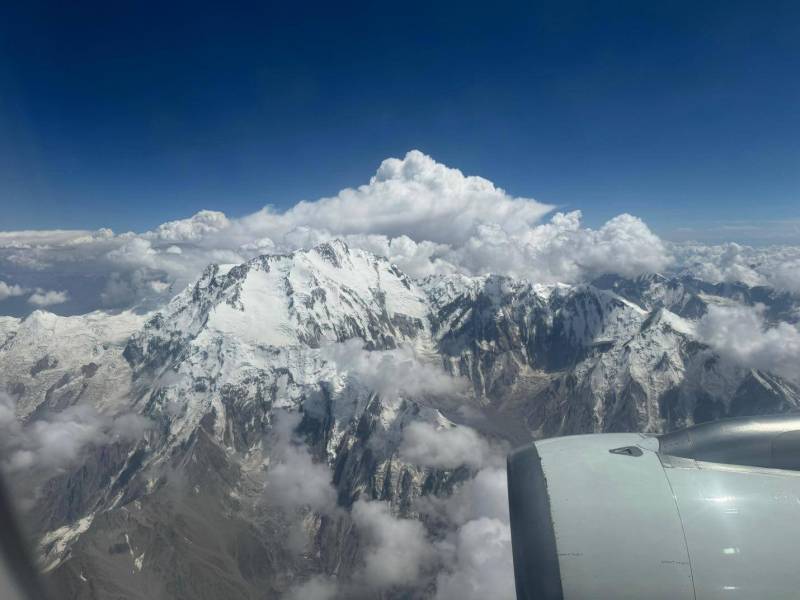
As I conclude, I must reiterate that to see the beauty of Skardu with naked eyes is to bear witness to the word of God in Surah Rehman: “And which of the wonders of the Creator will thou deny?”


